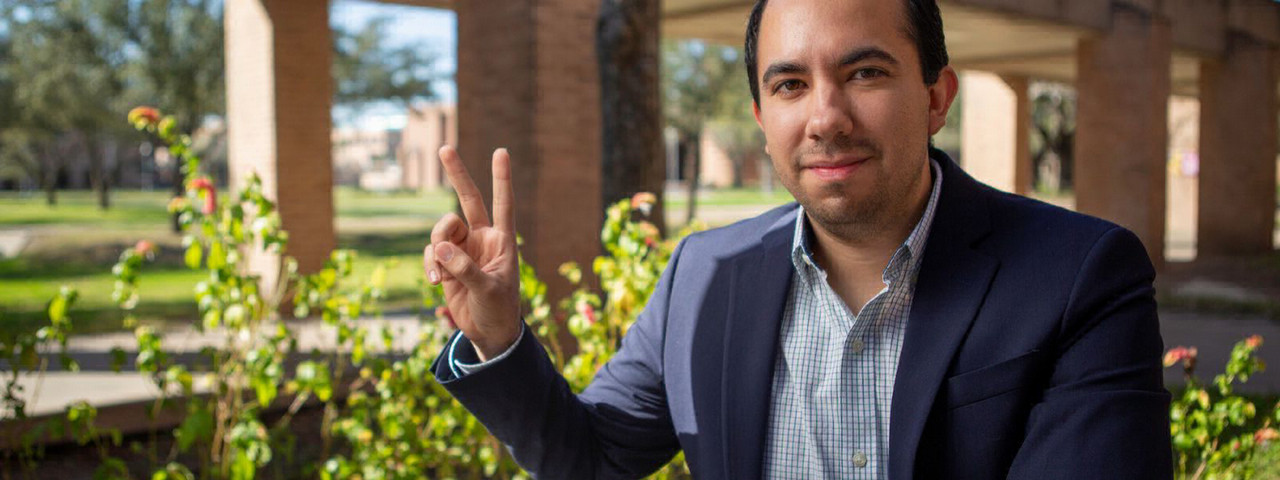We offer an undergraduate Bachelor of Science degree with emphasis areas in addictions (which may lead to licensure), deaf & hard of hearing, and a general rehabilitation track. We also offer a Master of Science degree in Clinical Rehabilitation Counseling, which may lead to becoming a Certified Rehabilitation Counselor or a Licensed Professional Counselor. Additionally, we offer a Ph.D. in Rehabilitation Counseling, which prepares graduates to become the next generation of college professors, researchers, and administrators. We currently have 27 full-time (tenured, tenure track and clinical track) faculty teaching in the program. The undergraduate program was accredited by the Council on Rehabilitation Education (CORE), 2013-2021 and is now recognized by the Council for Accreditation of Counseling and Related Education Programs (CACREP) in the undergraduate registry. The master's program is also accredited by CORE until 2018. The School of Rehabilitation is currently ranked #14 in the nation by U.S. News and World Report.
The School of Rehabilitation Services & Counseling is located in a modern facility (Health Sciences & Health Services West building) featuring dedicated classrooms and a state-of-the-art assessment lab. Currently, we also house the Addictions Resource Center. Students enrolled in the School are exposed to a rich cultural experience. Due to the proximity of The University of Texas Rio Grande Valley (UTRGV) to the Texas-Mexico border (approximately 15 miles), most of the area residents are bilingual in English and Spanish. In fact, approximately 88% of the UTRGV student body self-identifies as Mexican American.
The school sponsors active student undergraduate & graduate organizations: R.E.H.A.B. Club, Aspiring Substance Abuse Professionals organization, R.E.H.A.B South Club, and The Graduate Rehabilitation Counselors Association. The stated goals of these clubs are to increase awareness (of self and others) of people with disabilities and provide opportunities for community service while also having fun! Typical student activities include community projects, fund raising, disability awareness activities, and club- sponsored field trips. Recent members have taken trips to Corpus Christi, Houston, Austin, and San Antonio.
Please contact anyone within the school to discuss your career goals and how we can help you obtain them. We look forward to hearing from you!
Accreditation
This is the updated accreditation message for School of Rehab Services and Counseling:
The Bachelor of Science in Rehabilitation Services is accredited by The Committee on Rehabilitation Accreditation (CoRA), under the auspices of CAAHEP, and promotes and advances the quality of educational programs for inclusive rehabilitation services. Inclusive rehabilitation science programs prepare professionals with an understanding of the nature and impact of impairment and disability, as well as the various environmental, personal, vocational, historical, cultural, economic, physiological, socio-political, and geo-political factors.
The Bachelor of Science degree in Addiction Studies received accreditation from the National Addiction Studies Accreditation Commission (NASAC) on June 1, 2023. NASAC is the only accrediting organization that represents addiction-focused Major and Minor programs. Thus far only 10 bachelor-level degrees have been accredited in the nation and the UTRGV Addiction Studies degree is the first 4-year degree on Addiction Studies to be accredited in Texas. The degree is accredited until December 31, 2029 with opportunity to renew. https://nasacaccreditation.org/
The master's program is accredited by the Council for Accreditation of Counseling and Related Educational Programs (CACREP) until October 2027 www.cacrep.org. As such, students who successfully complete the requirements of this program are eligible to sit for the Certified Rehabilitation Counselor (CRC) exam. In addition, program graduates are also qualified to sit for the National Counselor Exam (NCE), for those interested in obtaining the Licensed Professional Counselor (LPC) designation.
The Ph.D. program is accredited by the Council for Accreditation of Counseling and Related Educational Programs (CACREP) until October 2027 www.cacrep.org.
Goal
The overall goal of the program is to prepare graduates to enter the work force in professional positions with the skills, knowledge, and attitudes to assist people with disabilities to lead full, independent lives. Graduates are also well prepared to enter graduate school.
Objectives
- Students will articulate the elements related to professional identity including; the history and philosophy of the counseling profession, the value of professional organizations, legal and ethical practice, and advocating for the profession and clients that are served.
- Students will demonstrate multicultural awareness, knowledge, and skills necessary for competency in working with a diverse population.
- Students will demonstrate an understanding of development across the lifespan and the impact on typical and atypical functioning.
- Students will utilize career development theories in the formation of diverse, individualized and developmentally appropriate career activities and interventions.
- Students will demonstrate the skills necessary to engage in an effective and therapeutic helping relationship.
- Students demonstrate competency in preparing and facilitating group counseling.
- Students will identify effective and diverse assessment strategies in order to facilitate culturally appropriate treatment planning.
- Students will apply research methods and program evaluation to inform evidence-based practice.
- Clinical Rehabilitation Counseling graduate students will demonstrate both knowledge and an understanding of the application of techniques and interventions for the prevention and treatment in working with diverse populations in various settings.

